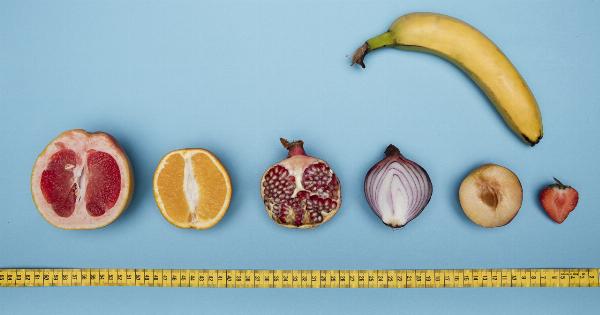For many people, having an orgasm is a pleasurable and natural part of sexual activity. However, there are times when individuals may struggle to reach orgasm, which can be frustrating and concerning.
If you find yourself in this situation, it is important to know that you are not alone. There are several strategies and techniques you can try to help you achieve orgasm.
In this article, we will explore some of the common reasons why individuals may have difficulty reaching orgasm and provide practical tips to help you overcome this challenge.
1. Explore Your Body
One of the first steps in overcoming difficulty reaching orgasm is to become familiar with your own body. Spend some time exploring yourself through self-pleasure or masturbation.
This allows you to discover what feels pleasurable and what areas of your body are most sensitive. Not only can this help you understand your own arousal patterns better, but it can also help you communicate your desires and preferences to your partner.
2. Communicate with Your Partner
Open and honest communication with your partner about your experiences and desires is crucial. Letting your partner know that you are having difficulty reaching orgasm can alleviate some of the pressure you may be feeling.
Talk about what feels good and what doesn’t, and consider experimenting with different techniques or activities to enhance pleasure. Your partner may also have valuable insights or suggestions that can contribute to the solution.
3. Try Different Techniques
If you are unable to reach orgasm through your usual methods, it may be time to try something different. Experiment with different techniques, such as using a vibrator or exploring different types of stimulation.
You can also try incorporating fantasy or erotica into your sexual activities to enhance arousal. Remember, what works for one person may not work for another, so be patient and open-minded while exploring new options.
4. Incorporate Foreplay
Foreplay can play a crucial role in enhancing sexual pleasure and increasing the likelihood of orgasm. Engaging in activities like kissing, touching, and oral sex can help build arousal and stimulate the body.
Take your time and focus on the sensations you are experiencing. Try to create a relaxed and comfortable environment that allows you to fully enjoy the experience.
5. Practice Mindfulness and Relaxation
Feeling anxious or stressed can significantly impact your ability to reach orgasm. Practice mindfulness and relaxation techniques to help calm your mind and body during sexual activities.
Deep breathing exercises, meditation, or yoga can help you focus on the present moment and increase your overall enjoyment and pleasure. By reducing stress and anxiety, you may find it easier to achieve orgasm.
6. Explore Psychological Factors
Psychological factors can also influence your ability to reach orgasm. Past experiences, emotional blocks, or relationship issues can all contribute to difficulties in achieving orgasm.
Consider exploring these factors with the help of a therapist or counselor who specializes in sexual health. They can provide guidance, support, and tools to address any underlying psychological issues that may be interfering with your sexual satisfaction.
7. Experiment with Different Positions
Changing sexual positions can help vary the stimulation and potentially increase your chances of reaching orgasm. Try different positions and angles to find what works best for you.
Some positions may provide more direct clitoral or G-spot stimulation, which can enhance pleasure and increase the likelihood of orgasm. Remember, it’s all about finding what feels good for you and your partner.
8. Use Lubrication
Lack of lubrication can make sexual activities uncomfortable or even painful, which can hinder your ability to reach orgasm. Using a water-based lubricant can increase comfort and make sexual activities more pleasurable.
Additionally, some lubricants offer stimulating or warming effects that can intensify sensation. Experiment with different lubricants to find one that enhances your overall sexual experience.
9. Consider Medical Factors
In some cases, difficulty reaching orgasm may be related to underlying medical conditions or medications. Certain medications, such as antidepressants or blood pressure medications, can affect sexual functioning.
If you suspect that a medical condition or medication may be contributing to your difficulties, speak with a healthcare professional to explore potential solutions or alternatives.
10. Be Patient and Kind to Yourself
It is important to remember that achieving orgasm is not the sole measure of sexual satisfaction or pleasure. Putting too much pressure on yourself to achieve orgasm can actually make it more difficult.
Be patient and kind to yourself throughout the process. Focus on the pleasure and enjoyment of the experience, rather than solely on the end result. By taking the pressure off, you may find that orgasm becomes more attainable.
Conclusion
Difficulty reaching orgasm is a common concern for many individuals, but it does not have to be a permanent obstacle.
By exploring your body, communicating with your partner, trying different techniques, incorporating foreplay, practicing mindfulness, addressing psychological factors, experimenting with positions, using lubrication, considering medical factors, and being patient with yourself, you can increase your chances of achieving orgasm. Remember, everyone’s journey is unique, so don’t be discouraged if it takes time to find what works best for you.





























